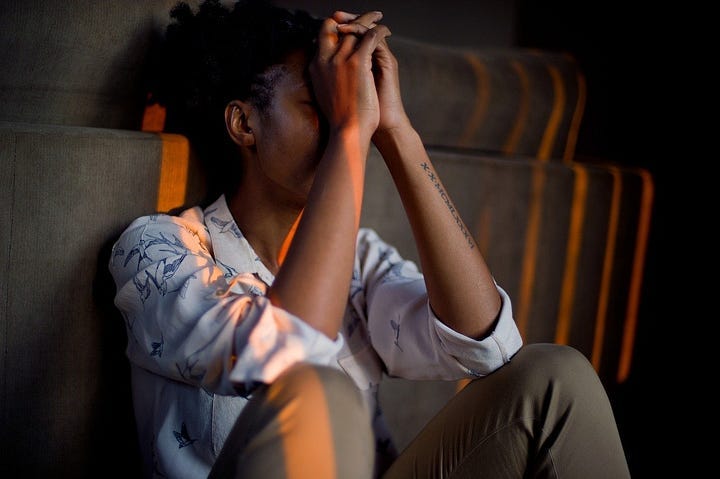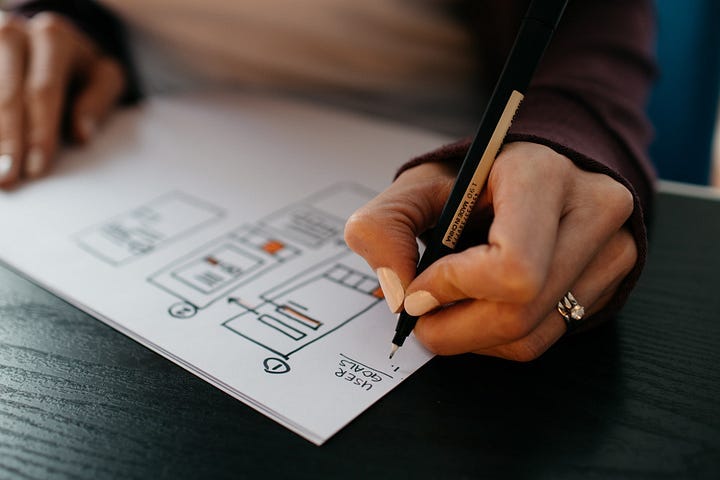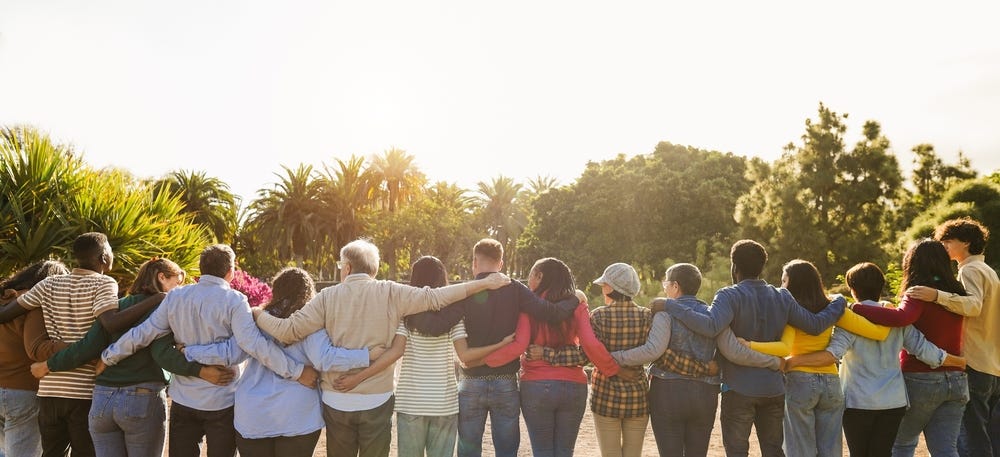Resist Burnout: Care, Coping, and Wellness in Dark Times
How can we practice self-care to endure the revolutionary marathon and better support one another?
Photo by William Perugini via Shutterstock
Life presents many challenges—especially amid the rising tides of fascism and collective uncertainty. Yet, just as solidarity and mutual aid empower communities in turbulent times and in general, cultivating personal resilience through healthy coping strategies strengthens our capacity to endure and thrive. Navigating these difficulties with care for ourselves and each other can be an act of resistance.
Set Yourself Up for Success
Photo by Zach Reiner on Unsplash
Growing up, I wasn’t taught how to manage emotions in school, and I suspect I’m not alone in that experience - especially among fellow young men. We all face hardships and confusing feelings at different points in our lives. I was fortunate to have access to counseling during my formative years—an invaluable privilege that not everyone enjoys under capitalism where basic needs become commodities and gatekept behind paywalls.
Talking through big life events, such as questions about identity or social struggles, with a trusted counselor equipped me with tools to manage my emotions constructively. Everyone deserves access to such mental health resources, especially as social, environmental, and economic conditions grow more precarious. In the absence of accessible systems, communities often come together to provide support—mutual aid networks, healing spaces, and solidarity groups step in where institutions fail.
Check In With Yourself
Photo by Drew Coffman on Unsplash
When navigating tough times—whether due to personal stress, loss, or collective grief—it’s essential to start with a wellness check. Even seemingly small actions can lay the groundwork for better well-being.
Ask yourself:
Am I hydrated?
Have I eaten something nourishing?
How well did I sleep last night?
Have I moved my body recently?
Do I feel lonely?
These foundational needs are often overlooked but make a world of difference when addressed. During prolonged periods of difficulty, focusing on the basics can help stabilize your well-being.
Coping Strategies vs. Defense Mechanisms
Photo by Isi Parente on Unsplash
Coping strategies help us process difficult emotions and manage stress in constructive ways. They can be emotion-focused or problem-focused. Conversely, defense mechanisms are often unconscious reactions that distort reality to protect self-esteem but ultimately avoid addressing underlying issues.
Common Defense Mechanisms
Denial: Ignoring a problem or pretending it doesn’t exist.
Dissociation: Mentally distancing yourself from a traumatic event.
Projection: Attributing your feelings to someone else.
Self-medication: Using substances to escape or numb emotional pain.
While these mechanisms may offer temporary relief, they do little to build resilience or address root causes. Healthy coping strategies, on the other hand, provide lasting tools for navigating life’s hardships.
Emotion-Focused Coping
Photo by Joshua Oluwagbemiga on Unsplash
These methods are useful when circumstances are beyond your control—like grief over a loved one or political upheaval.
Some effective techniques include:
Taking a walk or engaging in physical activity.
Journaling or creative expression.
Practicing mindfulness or deep breathing exercises.
Listening to uplifting music or watching a comforting film.
Connecting with supportive friends or community members.
Problem-Focused Coping
Photo by Kelly Sikkema on Unsplash
When the stressor is within your control, problem-focused strategies help address the root cause.
Examples include:
Creating a budget to tackle financial stress.
Developing a plan and timeline to achieve a specific goal.
Seeking new employment or acquiring new skills.
Practicing for an important presentation or event.
The Role of Community in Coping
Photo by DisobeyArt via Shutterstock
Self-care is vital, but individual resilience doesn’t exist in isolation. In times of social and political crisis, collective care becomes essential. Mutual aid networks, community kitchens, and healing spaces exemplify how people come together to support one another. Leaning into these spaces not only provides tangible relief but also reminds us that we’re not alone.
Remember, sometimes we must step away to regain our wits and stability. Capitalism presents challenges constantly, but we need you in the struggle. If stepping away temporarily to focus on your well-being improves your longevity, by all means, please do so. Remember to train your replacements and return when you are ready.
Participating in collective actions, sharing resources, and showing up for each other—these are all ways to build resilience within our communities. When we help others cope, we often find healing ourselves. Conversely, when we find healthy ways to cope, we are better able to help others.
We Thrive Together
Photo by Richard Schneider via Wikimedia
Life will always present challenges, but by practicing healthy coping skills, we empower ourselves and each other to thrive despite adversity, exploitation, and oppression. Start with the basics: hydrate, eat, rest, and move your body. Then, engage in practices that help you process emotions and tackle problems head-on.
Remember: nurturing yourself is not selfish—it’s a vital part of sustaining your capacity to show up for others. Take time to sing in the shower, plant a garden, or create something beautiful. And when possible, offer a hand to someone else in need. This is a marathon; you can pass the baton.
Through self-care and collective action, we resist the forces that seek to divide and oppress us. What are your go-to coping strategies? How do you contribute to collective resilience? Share your thoughts in the comments below.
First Published on Medium
Beyond Darwinism - Mutual Aid Index
Beyond Survival of the Fittest: Kropotkin's Vision of Mutual Aid
What is the role of solidarity and reciprocity in building equitable and sustainable communities?
Mutual Aid Among Plants and Animals: Cooperating for Survival
Peter Kropotkin Observes How Cooperation Among Species Improves Survival and Shapes Evolution.
Frolics and Barn-Raisings: Mutual Aid Amongst the Amish
Take a Look at the Amish Traditions of Collective Action and Solidarity.
The Arab Spring: Mutual Aid in the Fight for Freedom
See Solidarity in Action with the Collective Struggle for Liberation in the Arab Spring Movements.
The Black Panther Party’s Legacy of Community Empowerment Through Mutual Aid
The BPP protected and served their communities despite rampant racism and being the main targets of the FBI’s Counter-Intelligence Program.
Blessing Boxes: Mutual Aid in Our Communities Today
Find Out How These Simple Free Community Pantries Transform Neighborhoods and Promote Solidarity.
Childcare Collectives: A Modern Expression of Mutual Aid
Childcare Collectives develop when families, friends, and neighbors pool their resources to raise children.
Feeding Hope: The Impact of Community Fridges as Mutual Aid
See How Grassroots Efforts Like Chattanooga’s Hope Community Fridge Transforms Food Access and Fights Food Apartheid.
Grow Food Together: The Impact of Community Gardening as Mutual Aid
Shared Gardens Enhance Food Security, Build Community Bonds, and Promote Well-being Without Personal Expense.
Community Self-Defense: Protecting Ourselves and One Another
Let’s Talk About How Communities Work Together to Protect Themselves From Harm Inflicted by the State and Fascists.
Community Workspaces: Where Coworking Meets Opportunity
Find Out How Shared Community Workspaces Support Creativity and Mutual Empowerment.
Deciding Together: The Consensus Model in Mutual Aid
How Collective Decision-Making Builds Strong and Resilient Movements As Shown by Occupy Wall Street.
Live Together, Thrive Together: Shared Housing as Mutual Aid
Imagine Housing as a Way to Build Community and Share Resources.
Breaking Bread, Building Bonds: What’s Cooking in Community Kitchens?
Learn How These Shared Kitchens Create Lasting Change Through Healthy Meals, Cooking Education, and Mutual Aid.
Migration and Mutual Aid: Navigating a Climate Crisis Together
The USA and Global North Grew Rich Burning Fossil Fuels. Radical Cooperation Can Help Us Adapt to a Changing World.
Forgive Us Our Debts: How Debt Collective Helps Abolish Financial Servitude
Debt Collective Branched Off From Occupy Wall Street and Unifies Debtors in Mutual Aid for Collective Liberation.
Thou Doth Protest? How The Diggers Reclaimed the Commons and Fought Early Capitalism
Learn About the Radical Solidarity and Resistance to the Enclosure of the Common Lands in 17th-Century England.
A World Without Barriers: Consider Accessibility in Mutual Aid
Everyone Becomes Disabled if They Are Lucky. So How Can We Make Our World More Accessible?
Mutual Aid in the Eye of the Storm: Disaster Relief Amid Climate Change
When Disaster Strikes, Mutual Aid Responds: A Blueprint for Resilience Amid More Frequent Catastrophes
Beyond the Ballot Box: Build Dual Power for Real Change
Empower People Through Mutual Aid, Solidarity, and Community Control.
Communities of Care: How Solidarity Transforms Support for Elders and the Differently-Abled
How Can Mutual Aid Principles Change Elderly and Disabled Care From Isolation to Connection?
Growing Resistance: How Food Forests Feed Communities for Free and Defy Capitalism
From Commodities to Commons: The Radical Potential of Agroforestry
Roots of Resilience: Black Mutual Aid Societies in American History
Explore W.E.B. Du Bois’ Work and the Heritage of Solidarity Among Black Folk.
From Despair to Dignity: The Radical Work of Free Clinics
How Mutual Aid and Community Solidarity Transform Access to Healthcare
Feeding Each Other: The Radical Power of Free Grocery Stores
How This Kind of Mutual Aid Transforms Hunger Relief into Community Empowerment
Challenge Capitalism One Free Store at a Time
How Free Stores Empower Communities and Challenge Scarcity
The Past & Future of Self-Governance: How General Assemblies Build Dual Power
Strengthen Communities Through Direct Democracy and Mutual Aid
Let Joy Guide You: The Power of Fun in Change Work
Explore the Role of Laughter, Creativity, and Connection in Community Organizing
Fascism Unmasked: How to Recognize and Resist Modern Authoritarianism
Empower Your Resistance: A Practical Guide to Revolutionary Optimism, Mutual Aid, and Defying Totalitarians
Resist Burnout: Care, Coping, and Wellness in Dark Times
How can we practice self-care to endure the revolutionary marathon and better support one another?
Resistance Anthems: Protest Music for Hard Times
Let’s Unite Our Voices For Justice Through the Power of Music!
Affinity Groups: Decentralized Resistance in an Age of Crises
How Do Small, Autonomous Collectives Build Power and Resistance Against Fascism, Capitalism, and Collapse?
Share a Feast: How Potlucks Build Community and Connection
Let’s Discuss How Sharing Food Nourishes Both Bodies and Bonds Across Generations.
Notes From the Underground: How Forests Teach Mutual Aid
How Do Fungi, Trees, and Other Plants Thrive Through Cooperation and Reciprocity?
Fight Book Bans with Little Free Libraries
How Do Little Free Libraries Turn the Tide Against Book Bans and Censorship?
Read, Rest, Revolt, Repeat: Study Groups as Mutual Aid
How Does Collective Study Build Power, Sharpen Strategy, and Sustain Movements?
Burn After Reading: Comms Discipline for Mutual Aid and Resistance
Think About Encryption, VPNs, Walkie-Talkies, and the Lost Art of Keeping Your Mouth Shut.












